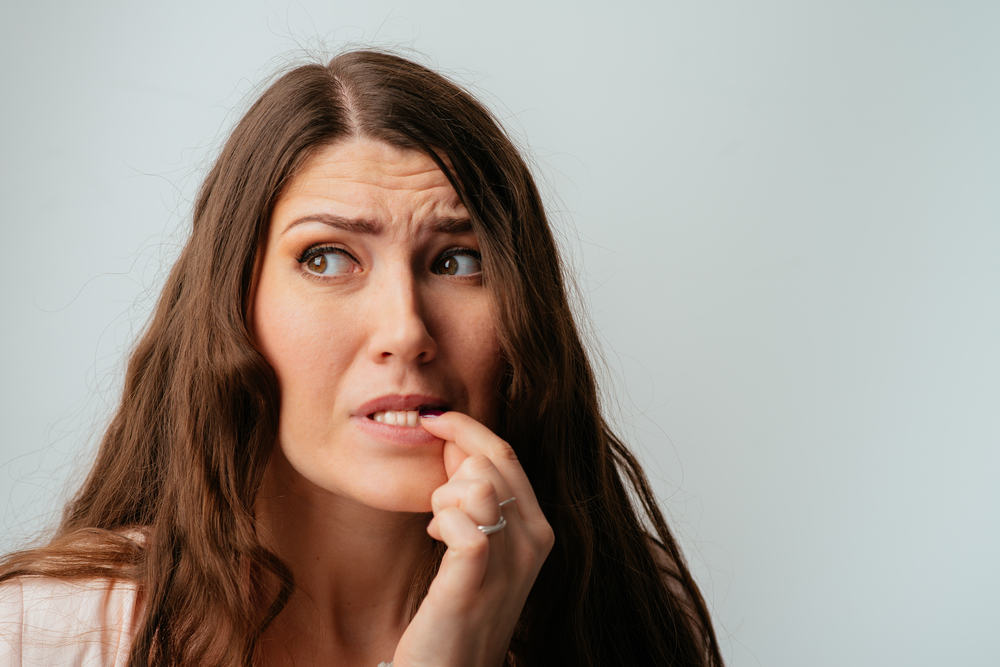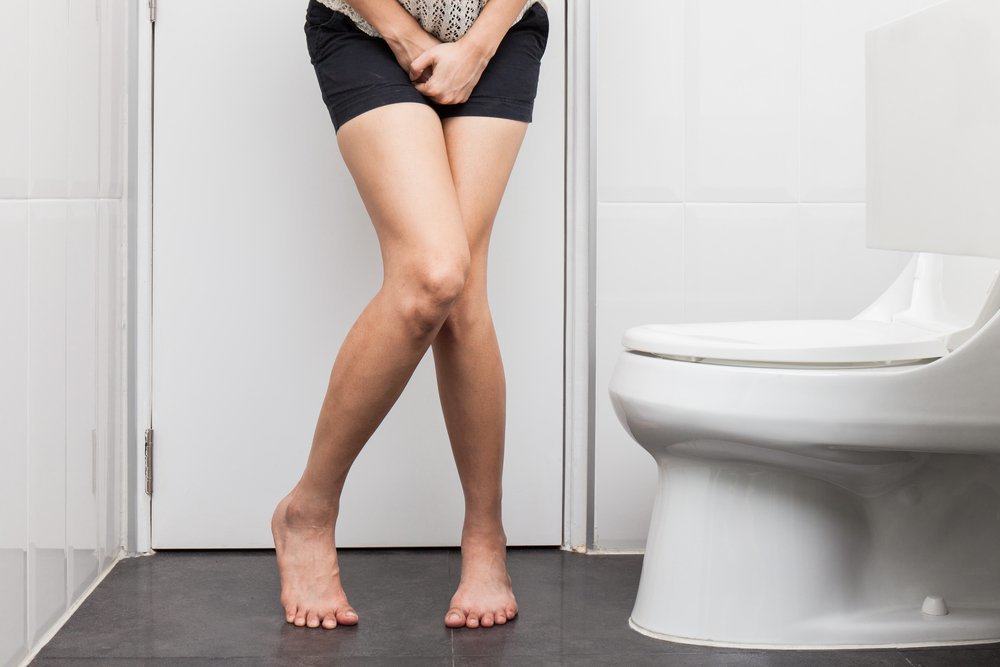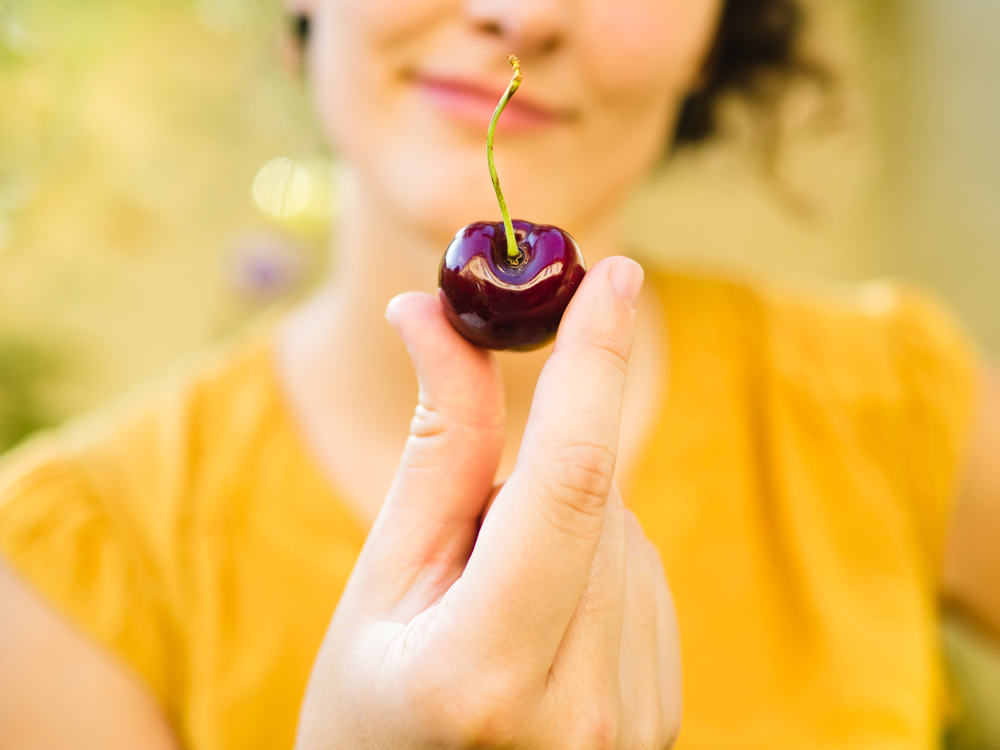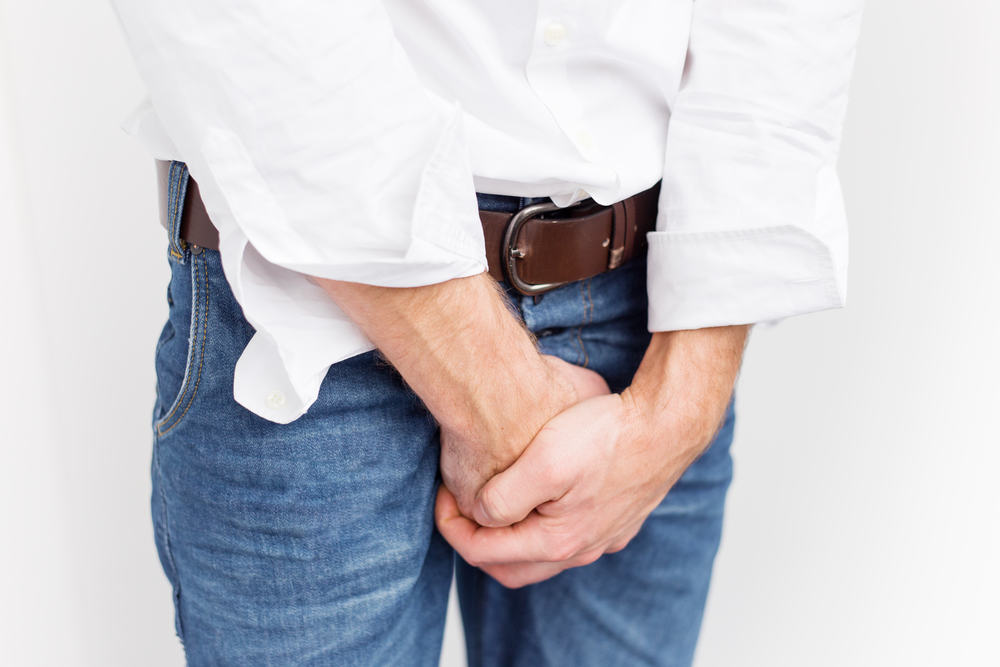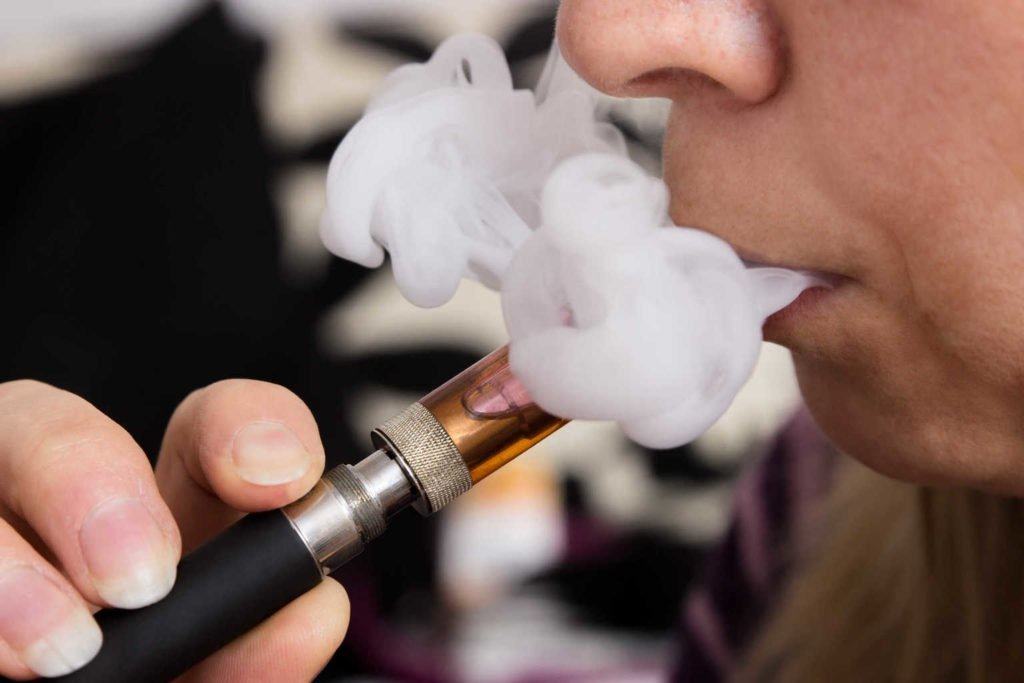Contents:
- Medical Video: Anxiety Problems - Top 10 Mental Mistakes We Make
- What happens to the body when we feel excessive anxiety?
- The most common habits are carried out when overlapping anxiety
- Touching face
- Playing hair
- Bite something
- Smoke
- Scratching teeth
- Overeating
- Sit crossed legs
- How to stop this habit?
Medical Video: Anxiety Problems - Top 10 Mental Mistakes We Make
The name of life, no doubt we are often trapped in a situation that is awkward that makes us nervous without being confused and overly anxious. Whether it's during the seconds leading to the thesis trial, the birth of a baby, or just waiting for a reply to a short message from the worshiped person.
Maybe you realize you like to shake your legs when you are anxiously waiting? Or is it actually biting the lips? Often we are unaware when caught in the middle of this awkward and uncomfortable situation, the body does something to calm down from the situation.
Even though the body's response to excessive anxiety often only shows a sense of discomfort, actually some of these habits can affect your health, you know!
What happens to the body when we feel excessive anxiety?
When you feel tremendous pressure or anxiety, you tend to do a number of strange habits that often occur unwittingly. This habit aims to reduce the stress you experience to divert your attention and energy from the situation. However, these habits also do not only arise when you feel excessive anxiety - it can also occur at any time depending on the personality of the owner of the body.
This "anti-anxiety" habit is considered a bad habit because you tend to do it repeatedly, motivated by a certain satisfaction. You do it even though you know that it should be avoided. This shows a lack of confidence, boredom, no interest, or discomfort with the situation at hand.
The most common habits are carried out when overlapping anxiety
Bad habits done by someone can occur in various situations depending on the personality and experience of the person. However, some of the habits that you do when excessive anxiety is also affecting your health.
The following are some examples of the unconscious habits that are most commonly performed when excessive anxiety, along with their impact on health:
Touching face
Many people like to touch their face - whether it's rubbing their eyes, cheeks or scratching their nose - when they feel anxious or stressed at something, even though they don't feel itching around their face. This habit is also often done accidentally when someone falls asleep.
Unless you are cleaning your face, you should avoid the habit of touching your face. This habit can move germs in the hands to the face, causing clogged pores and causing acne. Touching or scratching pimples with unclean hands also makes it easier to cause inflammation of the skin which causes more difficult acne scars to disappear.
Playing hair
Playing hair is a habit most often done by those who have long hair to play with their fingers. This habit shows if someone is bored, embarrassed, or is trying to calm down while thinking hard.
Unfortunately, the gesture to play hair that you do not consciously do is often considered an unprofessional attitude. for example, when having a serious discussion with someone at work. Not only that, playing the hair by pulling it will cause damage to the hair follicles and can interfere with hair growth or baldness in certain parts of the head.
Bite something
When dealing with situations that make you overly anxious, often you will unconsciously start biting your pen, pencil, or even your fingernails. Besides being unsightly, this habit can easily move germs from the open environment directly into the mouth and digestive tract, and can cause respiratory infections that are directly related to the mouth. Biting hard objects can also cause injury and damage to the oral mucosa.
Smoke
Not a few people who choose to smoke for the sake of seeking peace for a moment, even though this is not the case. This is only because the nicotine reaction in influencing the work of a person's brain which gives rise to a feeling of false calm.
Cigarettes have been proven to be a risk factor for various chronic diseases such as cancer and cardiovascular disease and are a cause of a decrease in the quality of health in general.
Scratching teeth
The habit of cracking teeth is known asbruxism, is a habit that often arises when people are anxious or a symptom of accidental sleep disorders. Grinding the teeth can damage the connective tissue of the tooth with bones or between one tooth and another, and cause muscle fatigue around the jaw if done for a long time.
Overeating
Excessive eating aka binge eating is a habit that is often done when someone experiences anxiety or frustration. For some people, eating is often used as a way out to calm down from stress because foods with strong flavors such as sweet, salty or fatty can affect the brain and cause a sense of pleasure for a moment.
Sit crossed legs
Sitting crossed legs for some people is done unconsciously as a way to calm down while being overwhelmed by anxiety. However, this sitting position is not good to do for a long time. Sitting in this position can make most of the body weight rest on the lower back. In the short term, sitting in an ino position can press nerves around the spine to the feet and cause reduced blood flow which is characterized by pain, tingling or numbness. In the long term, these habits can cause spinal muscle problems to chronic neck pain and headaches.
How to stop this habit?
Psychologist Ellen Hendriksen, Ph.D gives a few tips to get rid of bad habits when excessive anxiety, including:
- Realize that these habits can be eliminated - Although some habits can be influenced by genetics and habits in the family, always focus on what you do and practice to stop it.
- Realize your habits - This is the first step that must be done because the occurrence of these habits takes place automatically. Once you realize it, stop the habit immediately.
- Change your mindset - by changing the thought "I will stop now" to "I will practice to stop now." Realize that changing habits cannot happen easily or instantly, on the contrary by changing the mindset as an exercise to change your habits you will be less burdened and will not feel upset and want to give up when you repeat the habit.
- Realize when you make the habit - pay attention to when you do these habits such as when you are bored, anxious, or not in focus. Remind yourself not to do this habit when you are in that situation.
- Ask someone for help - if you live with someone ask for help to remind you when these bad habits arise.

